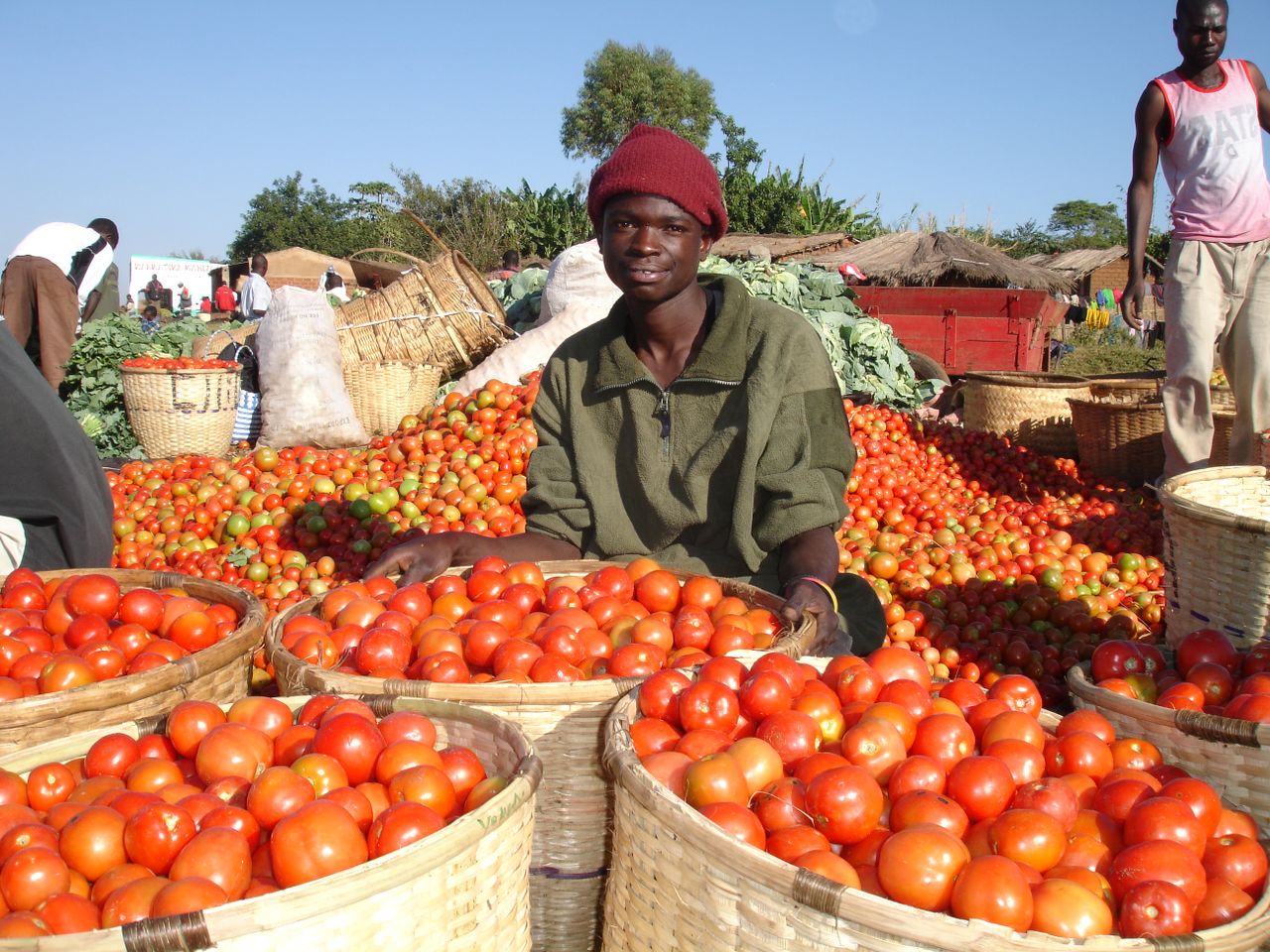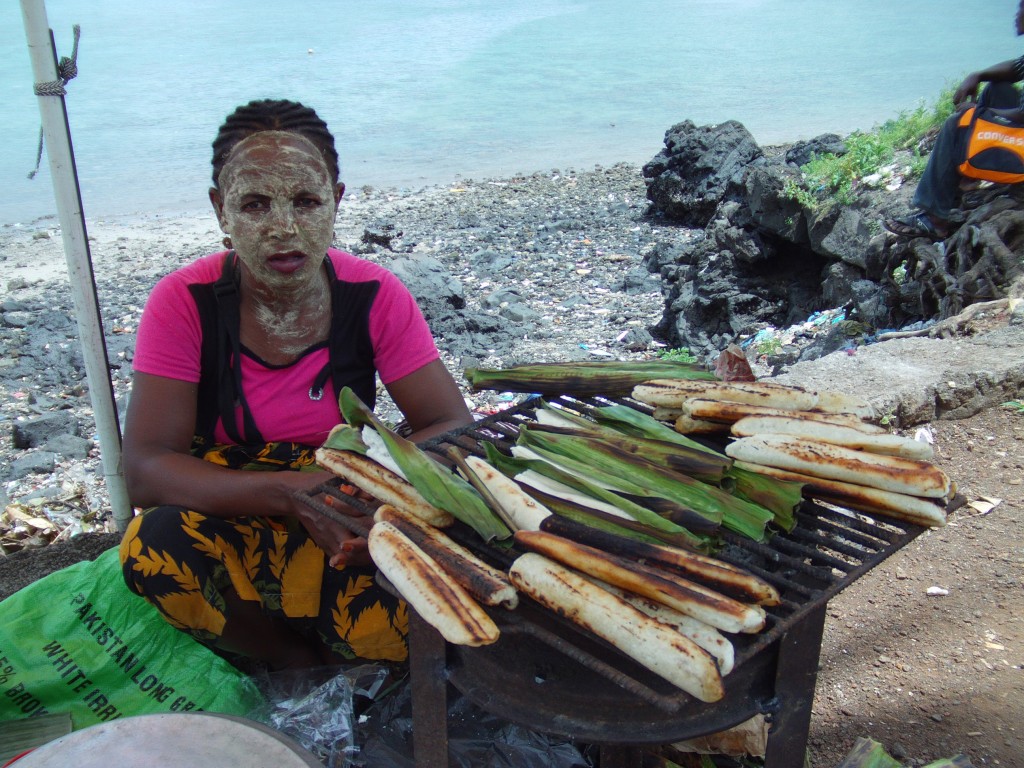In this day and age where technology has modernized every aspect of human existence, it is hard to imagine that there are countries that seem to have never felt the effects of modernity and the benefits of human advancements. Others are plagued with economic turmoil, political unrest, and civil wars, making it hard for their nations to go and rise above and beyond the pangs of the poverty line.
While Third World countries are now making strides in terms of economic growth, there are still others that are not catching up. Internal clashes of its residents, political problems, and geography are just some of the factors why these poor countries have remained poor for so long. Here are the 10 poorest Third World countries with the biggest economies, ranked by their Gross Domestic Product (GDP) per capita.
#10 Togo – GDP per capita: $899

Togo is ranked as one of largest producers and exporters of phosphate, a mineral widely used for agriculture purposes. But even with such status, Togo is still a poor nation. Aside from phosphate mining, the country also produces large chunks of the world’s cocoa, coffee, and cotton. A nation that relies heavily on commercial agriculture, Togo’s GDP per capita is $899. Half of the population is way below the poverty line, living on less than $1.25 per day.
#9 Madagascar – GDP per capita: $934

Having a successful animated film series named after the country may have boosted Madagascar’s image as a tourist destination, but this particular island nation lives way below the poverty line. About 69% of its population is just earning $1 a day, barely enough to make ends meet. With an annual GDP of just $934, Madagascar is hardly successful. Tourism and agriculture is Madagascar’s top industries, but the country is still looking for more investors to help alleviate their citizens’ economic plight.
#8 Afghanistan – GDP per capita: $956

Although considered by many as a dangerous country, Afghanistan is a beautiful nation smacked in the middle of Central Asia. But decades of war, political turmoil, and civil unrest have made Afghanistan non-inviting and non-appealing to foreign investors. 42% of the Afghan people live on less than $1 a day, while unemployment rate is at an abysmal 35%. That said, Afghanistan has never lost a war, which indicates that this is a nation of warriors who are willing to fight to the death rather than surrender. Hopefully such attribute will translate into economic prosperity in the future.
#7 Guinea – GDP per capita: $1,083

Guinea is rich with minerals and natural resources, ranging from precious diamonds, gold, and other metals. On top of that, the country has the makings of becoming a hub for hydroelectric power. But why is the country among the poorest in the world? Blame it on rulers who governed the country with an autocratic mindset, which contributed to widespread corruption and poorly developed infrastructure. Prior to its independence from French rule, Guinea was a major exporter of bananas, pineapples, coffee, peanuts, and palm oil.
#6 Mozambique – GDP per capita: $1,085

Mozambique relies heavily, almost solely, on small-scale agriculture and tourism, which contributes to the country’s poor economy. Adding to the fact are poorly developed infrastructure, the virtual absence of commercial networks, and lack of commercial investments. In terms of salary, Mozambique workers are paid a minimum of $60 per month. Even with their pristine beaches, Mozambique is struggling to become a hot tourist spot for beach goers.
#5 Ethiopia – GDP per capita: $1,093

While Ethiopia prides itself as an agricultural nation, with 85% of its work force working the agriculture sector, the country is consistently plagued with droughts. On top of that, many agricultural companies do not implement effective agricultural practices, which contribute to the country’s poor economic performance. There is also the issue of poor sanitation, which causes serious health problems in the country.
#4 Mali – GDP per capita: $1,128

50% of the Mali population live well below the poverty line and are only earning $1.25 a day. This is the reality despite the fact that Mali has natural deposits of gold and uranium and is a major producer of livestock and salt. Mali is also reliant on foreign aid. With most of the country’s geography consisting of desert and semi-desert, investors are naturally awry to make business in Mali. That said, the World Bank has created a program to help Mali’s economy grow, diversify, and become more appealing to foreign investors.
#3 Guinea-Bissau – GDP per capita: $1,144

Although commercial farming and fishing are Guinea-Bissau’s bread and butter on paper, many view the illegal narcotics trade as the most lucrative line of work in the country. More than 60% of the population is believed to be involved with the drug business, acting as couriers or as conduits of the illegal merchandise from Latin America to Europe. It is said that the government is aware of these practices but employ little to less opposition to stop the drug trade in the country.
#2 Comoros – GDP per capita: $ 1,232

Comoros is experiencing a boom in population, yet with only three islands in its territory and limited natural resources, this country is bound to see its economy drop significantly in the future. Comoros’ political structure is flimsy at best, and it has experienced numerous coups d’etat since gaining independence back in 1975.
#1 Haiti – GDP per capita: $1,235

While Haiti is a free market economy that basks in the benefits of affordable labor costs and tariff-free access to the US for their exported products, the island nation still suffers economically. Blame it on corruption within the government, limited access to education and career opportunities, and poverty. More than 80% of the Haitian population lives under the poverty line. The January 2010 earthquake, which jolted Haiti with a magnitude of 7.0 and turned Port Au Prince into rubble, dramatically set the country back in many aspects.
What are the environmental challenges impacting these countries?
Many of the world’s poorest countries are not only plagued by economic and political challenges but also face severe environmental issues that hinder their progress. Climate change, deforestation, and poor waste management systems are just a few of the environmental obstacles these countries encounter, exacerbating poverty and limiting sustainable development. Here’s a look at how these environmental factors impact their economies and daily lives:
- Climate Change and Extreme Weather: Countries like Ethiopia and Mozambique experience frequent droughts and floods due to climate change, which damages crops, reduces food security, and increases the cost of rebuilding affected areas. These events also heighten the need for humanitarian aid and place pressure on limited resources.
- Deforestation and Loss of Biodiversity: Deforestation in countries such as Madagascar and Guinea threatens biodiversity and weakens ecosystems that local populations rely on for food, fuel, and medicine. This environmental degradation diminishes natural resources and reduces potential tourism revenue.
- Water Scarcity and Pollution: Water scarcity in regions like Mali and Afghanistan affects agricultural output and clean drinking water availability, leading to health crises and lowered productivity. Additionally, untreated industrial and household waste contaminates water sources, impacting both humans and wildlife.
- Soil Degradation and Agricultural Decline: Poor agricultural practices, combined with overgrazing and lack of sustainable farming knowledge, lead to soil degradation. This is particularly prevalent in Ethiopia and Haiti, where poor soil quality limits crop yields and impacts food security.
- Waste Management Issues: In urban areas, limited infrastructure for waste management results in uncollected waste, which poses health hazards and contributes to urban pollution. This is a growing problem in densely populated areas of countries like Togo and Haiti.
Key Insights
- Togo: Despite being a major producer of phosphate and agricultural products like cocoa, coffee, and cotton, Togo remains impoverished with half the population living on less than $1.25 per day.
- Madagascar: Tourism and agriculture are the main industries, yet 69% of the population lives on just $1 a day, highlighting the nation’s struggle with poverty despite its natural beauty.
- Afghanistan: Continuous war and political instability have left 42% of the population living on less than $1 a day, with a 35% unemployment rate, deterring foreign investment.
- Guinea: Rich in minerals and natural resources, Guinea’s economy suffers from corruption and poor infrastructure, stemming from autocratic governance.
- Mozambique: Reliance on small-scale agriculture and tourism, combined with poorly developed infrastructure and lack of commercial networks, contributes to its economic challenges.
- Ethiopia: Frequent droughts and ineffective agricultural practices hinder economic growth despite 85% of the workforce being engaged in agriculture.
- Mali: Despite having natural resources like gold and uranium, 50% of Mali’s population lives below the poverty line, and the country is highly dependent on foreign aid.
- Guinea-Bissau: While commercial farming and fishing are official economic activities, the illegal narcotics trade is rampant, involving over 60% of the population.
- Comoros: Limited natural resources and a fragile political structure with a history of coups d’état since 1975 exacerbate the economic woes of this small island nation.
- Haiti: Enduring high levels of poverty due to government corruption, limited access to education, and the devastating impact of the 2010 earthquake, over 80% of the population lives below the poverty line.
FAQ
- Why are some countries still struggling with poverty despite having valuable natural resources? Countries like Guinea and Mali have significant natural resources but suffer from issues such as corruption, poor infrastructure, and political instability. These factors prevent the effective utilization of resources and deter foreign investment.
- How does political instability impact economic growth in these countries? Political instability, as seen in Afghanistan and Comoros, leads to a lack of investor confidence, disruptions in economic activities, and challenges in establishing stable governance structures, all of which hinder economic growth.
- What role does agriculture play in the economies of these countries? Agriculture is a crucial sector for many of these countries, like Ethiopia and Mozambique. However, challenges such as ineffective agricultural practices, frequent droughts, and a lack of commercial networks limit its potential to drive economic growth.
- How does the illegal drug trade affect the economy of Guinea-Bissau? The illegal drug trade in Guinea-Bissau, involving over 60% of the population, distorts the economy by diverting labor and resources away from legitimate economic activities like farming and fishing, and it also fosters corruption and instability.
- What impact did the 2010 earthquake have on Haiti’s economy? The 2010 earthquake devastated Haiti’s capital, Port Au Prince, causing significant economic setbacks by destroying infrastructure, displacing people, and exacerbating poverty and government corruption.
- Why is foreign aid important for countries like Mali? Foreign aid is crucial for Mali due to its reliance on external assistance to support its economy, address infrastructure deficits, and provide for basic needs in the face of widespread poverty and limited domestic resources.
- What are some common challenges these poor countries face that hinder their economic progress? Common challenges include political instability, corruption, ineffective governance, poor infrastructure, reliance on agriculture with inadequate practices, and limited access to education and healthcare, all contributing to persistent poverty.
- How does limited access to education affect these countries? Limited access to education hampers human capital development, restricts economic opportunities, and perpetuates cycles of poverty, as seen in countries like Haiti where access to education is a significant barrier to economic advancement.
- What measures can be taken to improve the economic conditions of these countries? Measures include improving governance and reducing corruption, investing in infrastructure and education, promoting effective agricultural practices, encouraging foreign investment, and fostering political stability to create a conducive environment for economic growth.
- How do natural disasters impact the economies of these countries? Natural disasters, such as droughts in Ethiopia and earthquakes in Haiti, cause significant economic disruptions by destroying infrastructure, displacing populations, reducing agricultural output, and increasing the burden on already strained resources.























This article was interesting. I had concerns with the world view of the author when he wrote about Afghanistan. No, they have never “lost” a war, however it’s not the citizens that are fighting it’s the terrorists who have been unelected and brutalize their own people. You can’t throw money at a corrupt government and think it will benefit the actual citizens. American citizens have made it clear we are not “nation builders” (we saw that In Afghanistan) so the question is, “what can be done?” I loved that Joanne, who commented above, is actually living in a third world country. We as Americans tend to think money solves everything but I don’t think that’s true. Not being naive, I know people have to eat to live, but since giving money doesn’t seem to be changing things (look at Hattie and the foreign aid they receive) perhaps something else needs to be done. Education is a good start, but instead of giving money for education, how about people volunteering to actually go teach, or set up schools. There are groups that do this already. Supporting these groups is a good start.
Allan Jay Why do you think Democracy fails this Third world Countries
Alan,
I don’t think that most of these nations have a Democratic government. That’s one part of the issue.
Thank you Jenny Chang for this Article. One of the causes of this problem is the bribery. They have to fight this plague.
It's not the people who make these places difficult to live in, it's the govt corruption and the wealthy people who don't give back. All of the people are nice, and they are happy. The bad people who are poor do what they can just to get by.
Government that is to powerful can be a problem.Then you are only free to follow all the rules and regulations and you better be able to provide proof of it or you will be impr
I see a lot of good hearted people in the comments section, but let us all please remember that there is no such thing as third or first world countries, but underdeveloped, developing and developed countries. The creator of this article should probably edit those terms in order for educated people to take the article more seriously. Nevertheless without said terms this article is pretty informative, is good to learn, thanks.
I truly believe that we take a lot of things for granted from meals to cars heck even music. Our generation is a very ungrateful one at most, if we could just open up our children's eyes and tell them to wake up and look at what's happening to the world instead of looking at that recent Instagram post Kim Kardashian made.
This is super sad. The idea that we take almost everything that we have in America, and spit it all out like it's trash. In order to help the people in third world countries, we need to start truly appreciating what we have in america and start taking advantage of it. We also need to start sharing and not being stingy.
It is very interesting that all this countries are very rich in oil, gold and other natural resources, but what is killing them is the Neoliberalism economy and the Globalization used by the first world countries...
Neoliberalismo is a very recent term and poverty is old, very old.
The problem started with Colonization. Colonizers just used the natural resources of those countries to bring that wealth and development back home. They prospered, but left the exploited natives without infraestructure and education. However, countries occupied by peoples who brought their wives and families from abroad to their new homes, became very rich until the present, however, poverty can still be seen in the most developed countries.
I am an American currently living in a third world country. I have been here for a year and I can tell you that there is no welfare or social safety net but people are doing fine without it. They respect the elderly and care for the disabled more than any government benefits program ever could. America has poverty of the heart and soul- these people are better off and happier , more grateful for the free things in life - the things that actually matter. Lack of money is not the only kind of poverty in the world today.
I agree with you. Beautiful way of thinking.
Hi Joanne,
Thanks a million for your sincere words. Totally I share my thoughts with you. Just like you, I have lived in a few third world countries and learnt a lot with their people. Their family values and care for people are outstanding. Amazing that with so little they can be so kind and happy.Cheers.God bless
That's great to hear, Joanne. I always had a feeling that third world countries were not as bad as some people want younger individuals to believe. I'd love to spend some time outside of America, so I could know what the real world is like.
Third world countries really are bad. Just because people are learning to survive doesn't mean they are doing well. For example, people with disabilities in third world countries are left to beg or live off the kindness of others. People with disabilities in the USA are educated, trained to work, and protected from discrimination (thanks to tax-funded programs like public education and the Rehab Act and ADA).
In third world countries, high infant mortality rates are an accepted part of life. In first-world countries, that's unacceptable, and our government health care subsidies help keep mortality rates low.
Please read more about third world countries than just this one person's comment. And I hope you do get to live in a third world country someday. They are grateful people, but if they could have government safety nets and public assistance, they would take it.
It is not enough to give resources. In fact most resources you do give up sadly will go to the corrupt oligarchies of those countries. In some of the countries listed above, it is so bad that the government has a habit of searching peoples houses and stealing the peoples food. Until we see a change in the countries government, we are incredibly unlikely to see a change in wealth. These people always appreciate help, but I am not sure how my "help" is actually going to the people who need it.
One person gets it. It’s not about charity, It’s about the people on top that take everything.
We have so much. Can we share with our brothers and sisters of the world? Istead of the next meal out or a brand new car? Sacrifices are difficult, but in our hearts we know it's the right thing to do. I have decsided to forgo going out to dinner once in the next month. It's something.
Sacrificing a meal makes you feel good, but how is that helping these people? I am not trying to be unkind with my words, it sounds like you have a good heart. I’m just saying that making ourselves feel good doesn’t necessarily equate to helping others. They don’t know your sacrificing a meal. They can’t eat the meal you sacrificed. You could take that money you save and support a child in one of these countries with a group like “Save the Children” or any one of those types of organizations. They are making a difference in people’s lives.
You almost described communism.
What is your definition of Communism?
If the whole country could get involved, just think.. if every American were to donate even just a dollar or two, hundreds of millions of dollars could be used to assist challenging countries. I feel that this is something my parents would consider a "pipe dream", but I believe it could become real.
America? South and Central America as well, cause I'd love to be part of "pipe dream"
That would be quite an insignificant amount on a national scale. If everyone in the US donated ten dollars that would equate to approx 3 billion. In 2012 the US gave 0.7% of their budget to foreign aid, approx 27 billion.
that is so sad. I have never realized that we are so wealthy and they are so so poor. :(
If any of these countries were given 10 thousand dollars to invest, would that be significant enough to escalate and quicken their development? What sort of improvements are achievable?
Even if they were given money to invest and improvise their economic system, depending on the type of leader they have the money given would either be invested leading to corruption or it would need more than just 10 thousand dollars.
We could open foundation to help. They don't really need much, giving them free education will go a long way
No. Sadly, some of these countries would need billions for full revival. It really is saddening watching all these countries fall so far below the poverty line.
That is a good point however most of these countries were doomed from the start, mostly because of the lack of trade and and transport. Rivers are a very important factor in the development of a nation
Leave a comment!